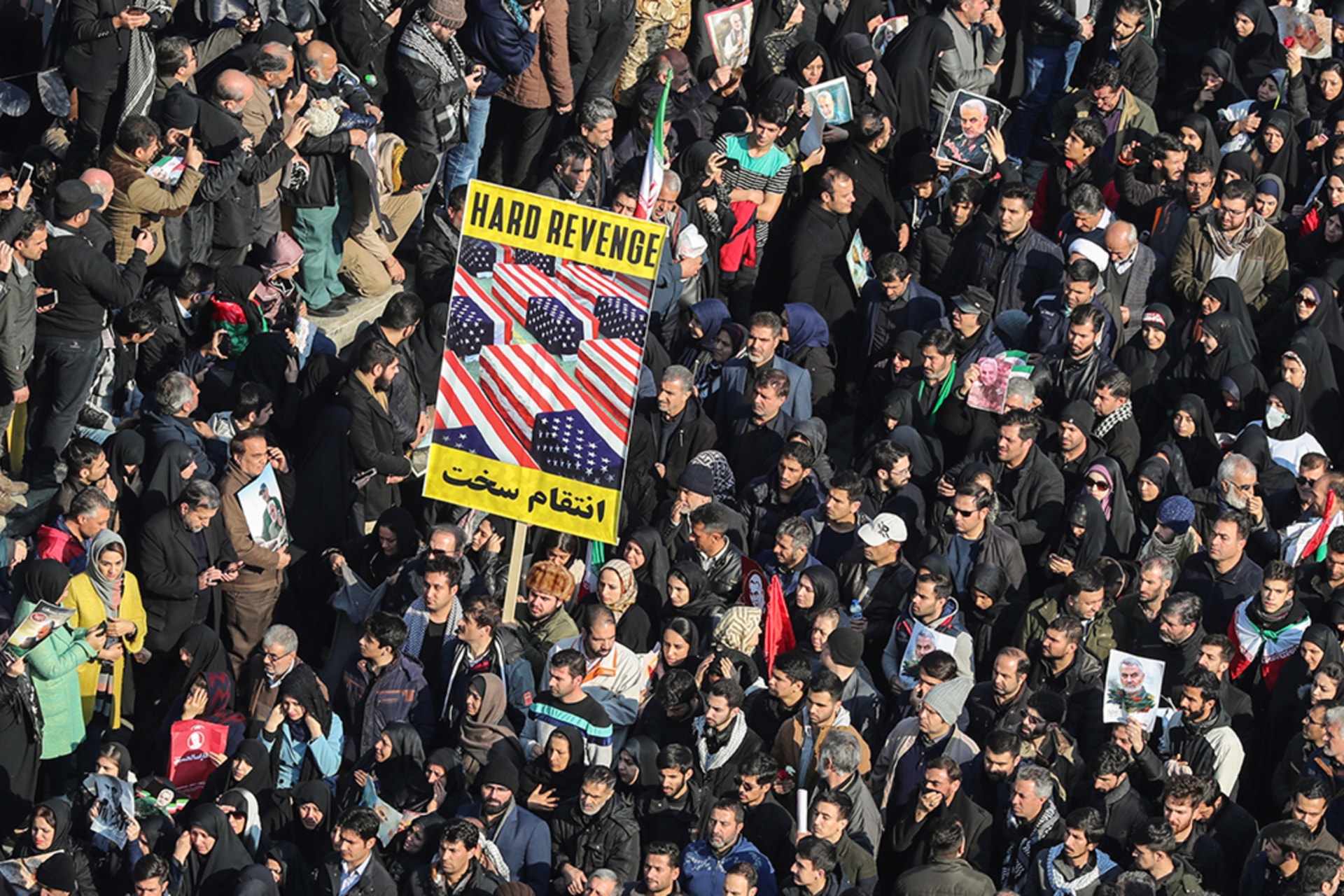America Must Be Ready For Iranian Retaliation
The assassination of Qassem Suleimani may have been legally justifiable but was not strategically prudent.
Originally published at Financial Times

By experts and staff
- Published
Experts
![]() By Richard HaassPresident Emeritus, Council on Foreign Relations
By Richard HaassPresident Emeritus, Council on Foreign Relations
In William Shakespeare’s play Julius Caesar, Mark Antony tells the audience what he plans to do to incite revenge for the Roman dictator’s assassination: “Cry ‘Havoc!’ And let slip the dogs of war.”
It is quite possible that Iran is readying the dogs of war following the US assassination of Qassem Soleimani, the chief of the Iranian Revolutionary Guards’ overseas forces. Indeed, this targeted air strike has the potential to be the most significant development in the troubled Middle East since the 2003 decision by then-US president George W Bush to launch the Iraq war.
The obvious big question is what happens next. There is little or no chance that matters rest where they are. Iran is highly likely to retaliate given the cult-like stature of Soleimani inside the country.
But when and where and how Iran might respond remains undetermined. If it comes to war, then we need to understand this will not be a traditional conflict fought by uniformed soldiers on clearly defined battlefields. The arena will be the entire region and possibly the world. It is unlikely to have either a clear start or a clear end.
Iran has a wide range of targets to choose among. There are US troops in Iraq, Afghanistan, Syria, Qatar, Saudi Arabia, Bahrain, and elsewhere, and American diplomats and businesses scattered throughout the Middle East. US ally Saudi Arabia was recently targeted by Iran via a strike on its oil facilities and could well be again. So, too, could Israel.
Iran can employ various militias, including Hizbollah. It could also target the US homeland with cyber attacks. Still another option for Iran is to accelerate its planned breakout from the 2015 nuclear pact.
Tehran also has enormous influence in Iraq. The Pentagon may have no choice but to pull out its 5,000 troops if (partly at Iran’s urging) the Iraqi government requests that it do so. The US may also deem it wise to remove American diplomats if the Iraqi government is unwilling or unable to protect the US embassy compound in Baghdad, which was attacked by angry demonstrators earlier this week. The result would be an Iraq in which Iran has even more sway and where terrorists once again would gain a large footing.
The case for killing Soleimani could be based on his past actions — he masterminded attacks that have killed many Americans — as well as potential ones. The air strike could have constituted a pre-emptive attack, if, as US secretary of state Mike Pompeo asserted on Friday, the Iranian general was planning new attacks that were in fact imminent. That would be consistent with self-defence under international law.
But what may be legally justifiable is not the same as a prudent course of action. US strategy towards Iran under Donald Trump’s administration has been controversial from the outset. The starting point was Mr Trump’s rejection of the 2015 nuclear accord. He saw it as fatally flawed given the limited duration of the constraints on Iran’s nuclear programme and the fact it did not cover either Tehran’s missile programmes or its regional activities.
Mr Trump took the US out of the pact and imposed severe sanctions on Iran, using maximum pressure designed to bring about a fundamental change in Tehran’s behaviour or even the downfall of the regime. Iran, feeling the economic pain, responded militarily — against tankers, Saudi refineries, US personnel, and the US embassy in Baghdad.
What the Trump administration has done with the Soleimani assassination — and with its retaliation days before against an Iran-backed militia responsible for killing an American contractor — is move from economic warfare to military action. It is less clear is why it did so now given the many US vulnerabilities in the region and the American need to commit resources to contending with the Russian threat to Europe and the challenges posed by North Korea and China in Asia.
The US would be wise to try to head off a dangerous and costly escalation with Iran. A diplomatic initiative that seeks to calm matters should be put forward. The goal should be to create new constraints on Iranian nuclear and missile programmes in exchange for a degree of sanctions relief. Indeed, such an initiative should have been launched months ago to provide an alternative to the tensions that have materialised.
Now, it may well be too late, at least in terms of preventing a degree of Iranian retaliation. But diplomacy should still be explored, as a limited set of armed actions and reactions is preferable to a large-scale, long-term conflict. Iran’s leaders could be open to a truce if they conclude the Islamic revolution itself is in some jeopardy. They reached such a deal in the late 1980s with then arch-rival Iraq.
The US should reduce its vulnerability throughout the region and prepare limited military responses in the hopes of deterring at least some of what Iran plans to do.
Such an effort might fail. If so, it would hardly be the first time governments learnt the hard lesson that it is easier to start or escalate a war than it is to slow or stop one. The Middle East, long defined by violence, seems about to add another chapter.
This article was originally published in the Financial Times.
